Train like a Scientist, Think like an Entrepreneur
How to leverage your research training to excel in the start-up world
By
Stacy Chin, Ph.D.
Copyright 2021 by Stacy Chin, Ph.D.
All rights reserved. No part of this publication may be reproduced, distributed or transmitted in any form or by any means, including photocopying, recording, or other electronic or mechanical methods, without the prior written permission of the publisher, except in the case of brief quotations embodied in critical reviews and certain other noncommercial uses permitted by copyright law. For permission requests, write to the publisher, addressed Attention: Permissions Coordinator, to SLCHIN973@gmail.com.
Disclaimer
The information provided in this book is not a substitute for professional, legal, or financial advice. The author makes no legal claims, and the material is not intended to replace the services of an attorney or the requirements of governmental agencies.
ABOUT THE AUTHOR
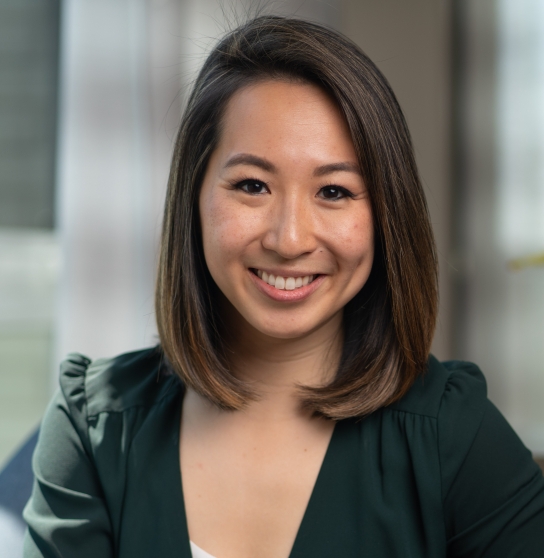
Stacy Chin is a champion and advocate for researchers and innovators whose passion is to turn their idea into a viable business. Dr. Chin, co-founder and CEO of Hydroglyde Coatings and a distinguished polymer chemist, shares her personal and professional journey from the laboratory to the board room in her book, Train Like a Scientist, Think Like an Entrepreneur . An NIH grant reviewer and mentor to first-time founders, she has set the bar high, made the mistakes, experienced the highs and lows, struggled to go on, and been rewarded with success. Her messageand personal discoveryis that what scientists have been trained to do at the bench, they are uniquely equipped to do in the marketplace: Bring an idea to life. The key is to learn the language of entrepreneurship and the mindset that governs it.
A passion for research and an entrepreneurial spirit drive Dr. Chins innovative endeavors. Her start-up, HydroGlyde Coatings was born out of a mission to deliver biomedical solutions to advance contraceptive products and global health. This led to the creation of the first-ever self-lubricating condom coating technology that received funding support from the Bill and Melinda Gates Foundation and National Institute of Health.
Dr. Chins interdisciplinary research background spans across polymers, biomaterials, biochemistry, structural analysis, and coatings. She secured over $1M of grant funding and is also the co-inventor of over a dozen granted and pending national and global patents. She has published and co-authored manuscripts in JACS, ACS Macro Letters, and Chemical Science. During her doctorate training, she was recognized for her research efforts through several awards and fellowships. She earned her chemistry Ph.D. at Boston University in the Grinstaff Lab and her BA from the College of the Holy Cross.
Dr. Chin consults start-ups on their business, non-dilutive funding, and research strategies. Dr. Chin holds leadership positions in R&D, product development, and business development, as well as manages interdisciplinary teams and collaborations with foreign partners. She has worked with founders, professors, medical doctors, and collaborators from top research institutions and hospitals, including MIT, Mass General Hospital, Columbia University, University of Colorado, UCLA, Brown University, Boston University, New York University, University of Texas, UCSD, and more.
Train like a Scientist, Think like an Entrepreneur
TABLE OF CONTENTS
INTRODUCTION
Chapter 1
GETTING THE START-UP STARTED
Chapter 2
THE BIG PICTURE
Chapter 3
FOUNDERS BLUES
Chapter 4
THE BACKWARD MINDSET OF COMMERCIALIZATION
Chapter 5
THE MISSING LINK: SOFT SKILLS
Chapter 6
BUILDING YOUR A-TEAM
Chapter 7
BRIDGING THE GAP
Chapter 8
SHOW ME THE MONEY, PART I
Chapter 9
SHOW ME THE MONEY, PART II
Chapter 10
ONE THOUSAND TRIES
ABOUT THE AUTHOR
NOTES
RESOURCES
INTRODUCTION
Five of us waited in the reception area. I was number 3. Each of us had 10 minutes to prove our idea was worth $100,000. Gazing out the massive windows onto the Boston Harbor skyline from the 20 th floor, I was tenser than I had been during my doctorate qualifying orals, if that was possible.
Breathe, remember your lines, stay calmand dont talk too fast.
The double doors clicked opened and the sound made me jump. The two remaining candidates looked at me then a voice called out my name. Stacy Chin. My heart skipped a beat. Ten seconds later I stood in front of 12 men in high-back executive chairs neatly positioned behind a crafted oak table, all dressed in expensive tailored suits with polished designer belts and shoes.
Dont screw this up.
It was not my first rodeo. I had delivered dozens of scientific presentations, published multiple articles in scientific journals, submitted patent applications based on my scientific findings, and was acknowledged for my research efforts through several awards. So when I was finally standing in front of reputable investors with a newly-minted Ph.D. and a prototype proposal backed by the Bill and Melinda Gates Foundation and the National Institute of Health (NIH), I expected to be well-received. It was only later that I came to understand that in the eyes of start-up savvy investors, a doctorate in polymer chemistry was equal to wearing the Scarlet Letter, proclaiming: She is a scientist, not a business leader.
Nevertheless, each one dutifully scribbled on their yellow pads during my seven-minute presentation filled with non-stop charts, graphs, and numbers. My hard-core technical slides were solid for a doctoral defense but had no structure or storyline to spark the slightest interest to these deep-pocketed investors. Worse, the financials were completely off (never again will I use the hockey stick projection!). When I finished my slides, I said thank you and politely asked for questions.
Do you have a pro forma and financial projections?
What is the estimated market capture in the next 3 to 5 years?
Do you have a regulatory strategy?
Have you considered whether you are B2B or B2C company?
What is your market and advertising strategy?
Are you licensing your technology or launching a brand?
This was the moment of truth. As a scientist, my world was all about forming structured hypotheses and testing them. Every day I approached the bench using highly controlled experiments to answer questions quantitatively using statistical analyses. At that time, my "market research" was reviewing the scientific literature and reading papers in my field. But here I was suddenly facing a wilderness with new rules and laws governing itsome I would learn over the next several years were directly opposed to the scientific training I had dedicated nearly a decade to achieve and perfect. I felt like a first year-graduate student againa G1 as we were called then.
Charting new horizons
Like me, you are a scientist and you understand. Youve spent years in a laboratory working 10-12 hour days, 6-7 days a week, honing your skills, generating and analyzing data, accumulating knowledge with the aim of becoming an expert in a narrow area of research. You've fiddled around with massive analytical equipment, from mass spectroscopy to nuclear magnetic resonance. You've poured color-less liquids tirelessly into glass containers from massive liter-sized solutions all the way into microliter plates. Youve demonstrated amazing dedication and adjusted to having little or no downtime in your life because getting your Ph.D. was your world.


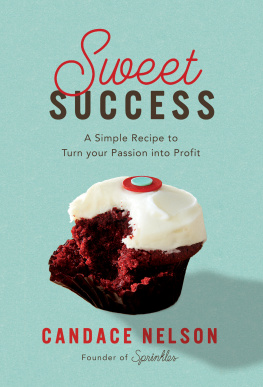

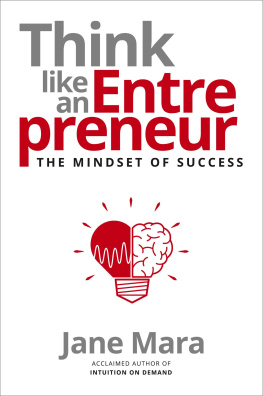
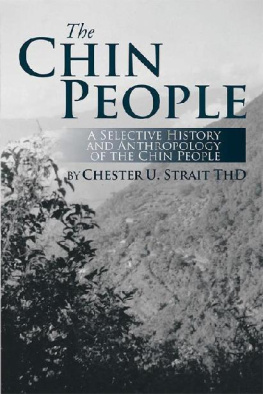
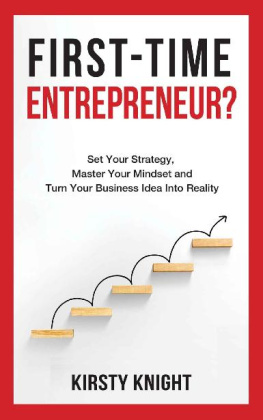
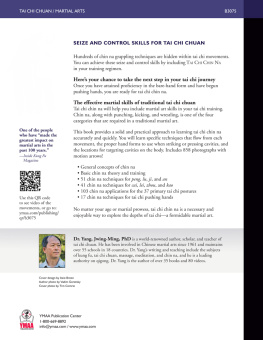

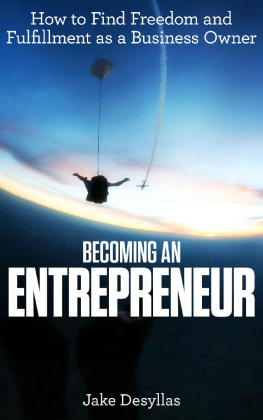
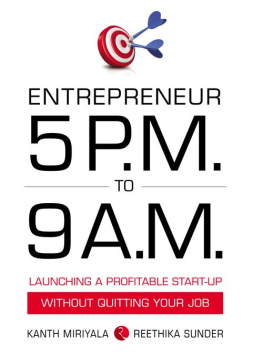
 Stacy Chin is a champion and advocate for researchers and innovators whose passion is to turn their idea into a viable business. Dr. Chin, co-founder and CEO of Hydroglyde Coatings and a distinguished polymer chemist, shares her personal and professional journey from the laboratory to the board room in her book, Train Like a Scientist, Think Like an Entrepreneur . An NIH grant reviewer and mentor to first-time founders, she has set the bar high, made the mistakes, experienced the highs and lows, struggled to go on, and been rewarded with success. Her messageand personal discoveryis that what scientists have been trained to do at the bench, they are uniquely equipped to do in the marketplace: Bring an idea to life. The key is to learn the language of entrepreneurship and the mindset that governs it.
Stacy Chin is a champion and advocate for researchers and innovators whose passion is to turn their idea into a viable business. Dr. Chin, co-founder and CEO of Hydroglyde Coatings and a distinguished polymer chemist, shares her personal and professional journey from the laboratory to the board room in her book, Train Like a Scientist, Think Like an Entrepreneur . An NIH grant reviewer and mentor to first-time founders, she has set the bar high, made the mistakes, experienced the highs and lows, struggled to go on, and been rewarded with success. Her messageand personal discoveryis that what scientists have been trained to do at the bench, they are uniquely equipped to do in the marketplace: Bring an idea to life. The key is to learn the language of entrepreneurship and the mindset that governs it.